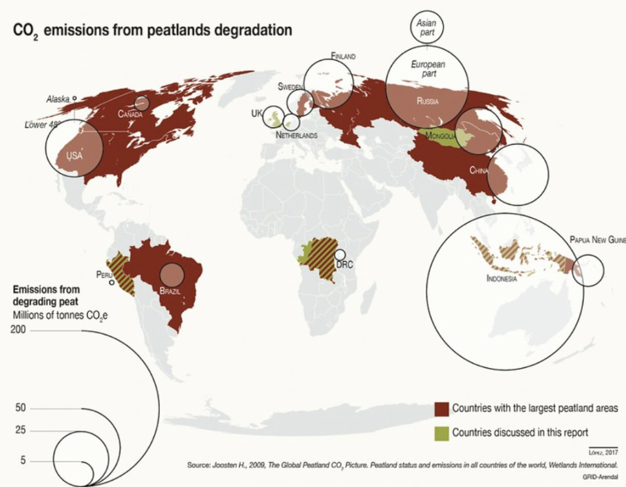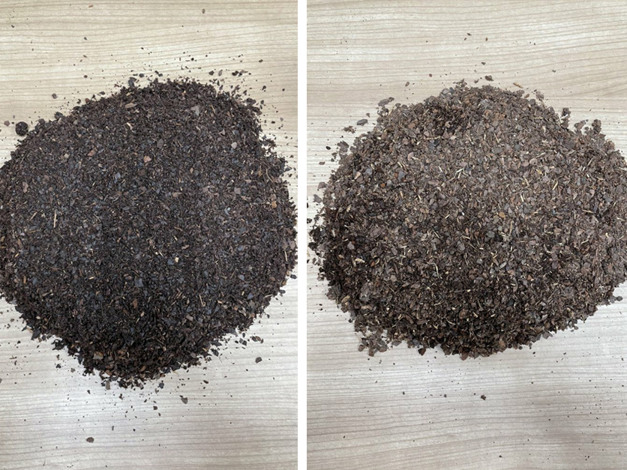Environmental concerns around using peat moss in commercial horticulture continue to grow. While opinions in the industry vary, the increasing demand for sustainable alternatives is undeniable.
According to Pacific Organics, sustainable options play a vital role in preserving peatlands, which are crucial for biodiversity, carbon sequestration, and water management. Peat extraction contributes to carbon emissions and habitat destruction.
Research published in Communications Earth & Environment suggests that loss of peatlands through land-use change and drainage accounts for 5%-10% of human-caused carbon dioxide emissions each year.

"While no alternative is perfect, there are plenty of alternatives to peat — such as bark, compost, coir, and wood fiber. Their sustainability depends on your geographic location and your sustainability goals", says Tom Trush with Hort Americas.
He brings pine bark to the attention of growers. "For growers in North America, pine bark has a unique sustainability profile. As a waste product from the lumber industry, bark is one of the few options that comes from the United States. As a result (and most importantly), this makes bark an economically feasible and affordable alternative to peat moss."
The bark is also available in quantities the industry demands. The U.S. alone produces around 40 billion board feet of lumber each year, which results in large quantities of bark by-products. "This amount of lumber is enough to build over 2.5 million average-sized homes."
Recently, Hort Americas, a leading provider of horticultural supplies in North America, partnered with Pacific Organics to highlight more sustainable practices in substrate development. This collaboration aims to demonstrate that eco-friendly solutions are also economically viable.
"Pacific Organics is at the forefront of the bark movement. Their RM18 product is engineered to provide a pH buffer and cation exchange capabilities compatible with peat moss. It's crafted from pine bark and designed to enhance soil structure while being environmentally friendly", says Tom.
 Left: RM18, right: Prop, another solution of Pacific Organics
Left: RM18, right: Prop, another solution of Pacific Organics
"The choices we make today are leaving an environmental footprint that will impact generations to come," said Chris Higgins, president and cofounder of Hort Americas. "Products such as RM18 are pivotal in steering the horticultural industry toward a more sustainable and responsible path."
Environmental efficiency by the numbers
Scotty Hipps with Pacific Organics explains the company wants to be transparent about RM18's production process, demonstrating the company's dedication to environmental stewardship. "If we break down our production process, we see that with daily production, Pacific Organics currently produces 11,194 yards of RM18 annually. This can be scaled to meet demand."
"Current production uses 1.921 gallons of fuel per day for this volume. It requires 6,254 kWh of electricity daily, making it extremely energy-efficient as a substrate product. As production scales, electricity demand does not scale equally."
Remarkable is how RM18's production requires no water. "Water is only necessary to adjust moisture content. Additionally, RM18 is produced alongside our regular operations. This eliminates the need for separate processes while reducing our carbon footprint."
"Also, as production scales, it becomes more efficient. This efficiency helps Pacific Organics keep costs down, which further contributes to making RM18 an economical solution for growers", Scotty adds.
A call for transparency and sustainability
By sharing production data and environmental efficiencies, Pacific Organics and Hort Americas aim to inspire other substrate producers to embrace transparency and sustainability. "RM18 is a testament to what the future of sustainable horticulture can look like."
Pacific Organics encourages others in the industry to disclose their environmental impacts to further promote a culture of responsibility and innovation.
For more information, contact:
Pacific Organics
Scotty Hipps
[email protected]
www.pacific-organics.com
Hort Americas, LLC
Chris Higgins
[email protected]
Tom Trush
[email protected]
www.hortamericas.com
